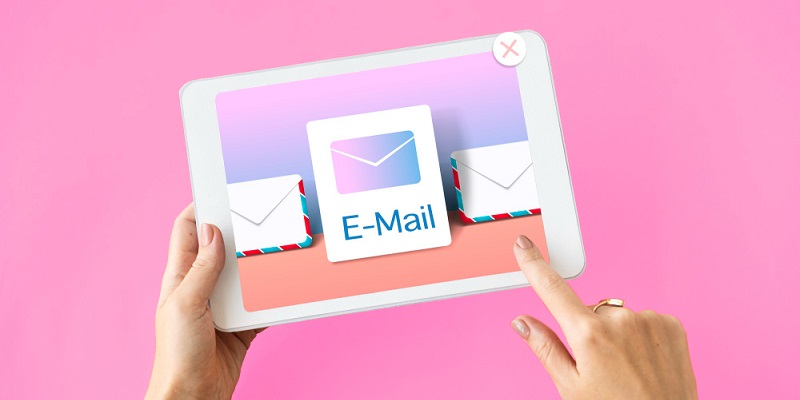Email marketing has been around for a long time and it is still one of the most effective ways to reach and engage customers. However, as digital technologies have evolved, so have consumers’ expectations. Today’s consumers want personalized, relevant content that speaks to their specific needs and interests. This means that email marketing has become less about blasting out generic messages to as many people as possible and more about building quality relationships with customers. In this article, we’ll explore the importance of personal connections in email marketing and how you can use them to enhance your marketing efforts.
Personal connections are at the heart of email marketing
As marketers, we often talk about email marketing as a tactic, like social media or SEO. But in reality, email marketing is all about personal connections. When you send an email, you’re not just sending a message to an anonymous subscriber. You’re communicating with a real person with real needs and interests. The more you understand email marketing from this perspective, the clearer picture you get that it’s really about personal connections.
Understanding Email Marketing as Personal Connections
To make personal connections with your email subscribers, you have to start by understanding their needs and preferences. This means gathering as much information as possible about your customers, including their name, location, gender, and more. You can use this information to segment your email list and create personalized content that resonates with each group.
Importance of information gathering
Gathering information about your customers is essential for creating personalized content that speaks to their needs and interests. It also helps you understand who your customers are and what they want, which can inform your product development and marketing strategies. The more you know about your customers, the better you can serve them.
Using Personalized Communication to Cater to Customer Needs
Personalization goes beyond just using a customer’s name in an email. It’s about understanding their pain points and creating content that addresses those pain points. For example, if you run an online clothing store, you might send different emails to customers based on their recent purchases. If a customer has bought a lot of dresses in the past, you might send them an email showcasing your latest dress collection.
Building rapport through communication
Communicating with your customers is a chance to build rapport and learn more about them. Your emails should be friendly, engaging, and informative. You don’t have to be pen pals, but a little warmth is recommended. Sharing stories or anecdotes in your emails can help strengthen your connection with subscribers and make them feel like they’re part of a community.
The Importance of Warmth
It’s essential to create a warm and welcoming environment in your email communications. One way to do this is by infusing your emails with your brand’s personality. You can add humor, empathy or any other traits that align with your brand’s values. This helps customers feel that they’re interacting with a genuine person rather than a faceless corporation.
Creating Personalization Through the Use of Customer Names and Attributes
Personalization can take many forms. An easy way to personalize your emails is by including the name of the person who creates the emails at the bottom. This creates a sense of accountability and lets subscribers know that someone is responsible for the content they’re receiving.
Featuring customers in email content
Another way to personalize your emails is by featuring customers in your email content. For example, you might showcase customer reviews or spotlight a particularly satisfied customer. Featuring your customers shows that you are reaching real people just like them, and can help build trust in your brand.
To establish personal connections with your email subscribers, you need to write email copy as if you’re a real person instead of a robot. This means avoiding jargon and complicated language and focusing on using clear, conversational language that sounds like it was written by a human.
Importance of Maintaining a Good Email List
The best personalization and customer relationship-building means nothing if you have bad email addresses on your list. Be sure to regularly review your email list and remove any invalid or irrelevant email addresses. This will help ensure that your emails are reaching the people who are most interested in hearing from you.
The Impact of Bad Email Addresses on Personalization Efforts
Bad email addresses can hurt your personalization efforts in a few different ways. First, they can harm your email deliverability, which means that fewer people will receive your emails. Second, bad email addresses can damage your sender reputation, making it more challenging to get your emails through to subscribers who are interested in hearing from you. Finally, bad email addresses can skew your metrics and leave you with an inaccurate understanding of how your customers are engaging with your content.
Regularly reviewing and updating email lists
To preserve those personal connections you’ve been nurturing, make sure to regularly review and update your email lists. This means removing harmful emails and ensuring that your list stays current and applicable. You can accomplish this by sending out email surveys to your subscribers or using other techniques to periodically engage with your audience and confirm that your email content remains novel and engaging.
Email marketing is all about building personal connections with your customers. By gathering information about your subscribers and using that information to create personalized content, you can strengthen those connections and build lasting relationships. Remember to communicate in a warm, friendly tone, showcase your brand’s personality, and regularly review and update your email lists to ensure that your subscribers are receiving the very best content. If you keep these tips in mind, you’ll be on your way to creating successful email marketing campaigns that build strong personal connections with your audience.

